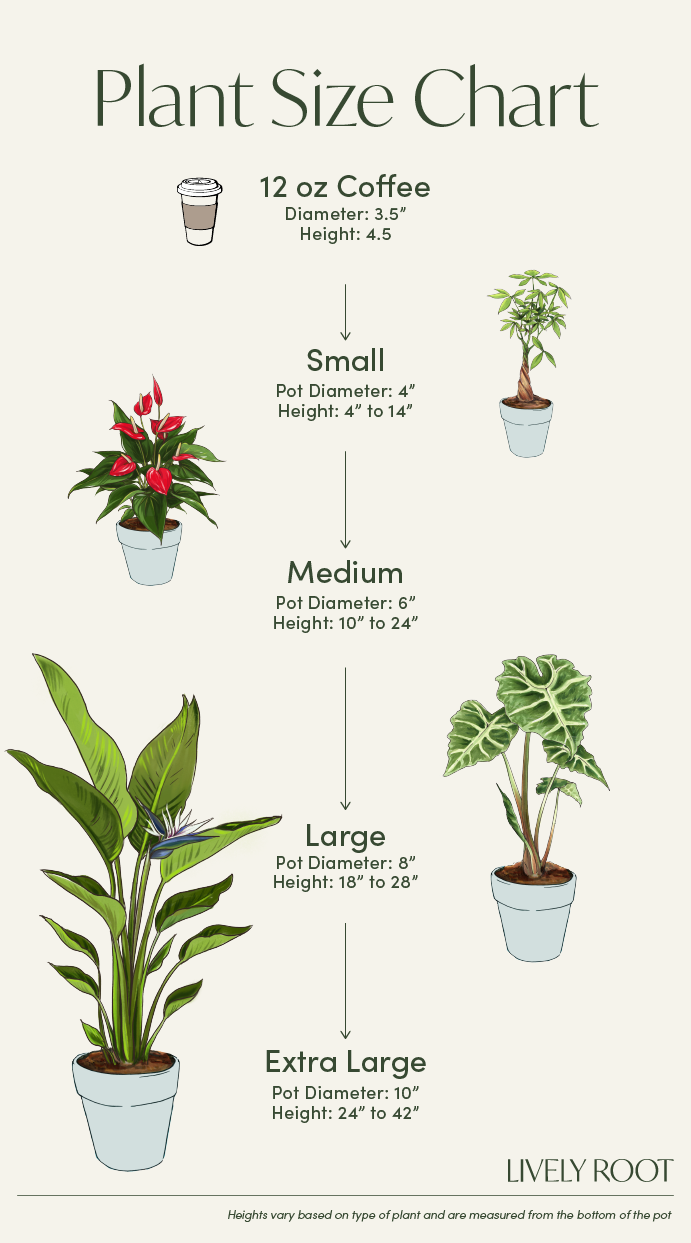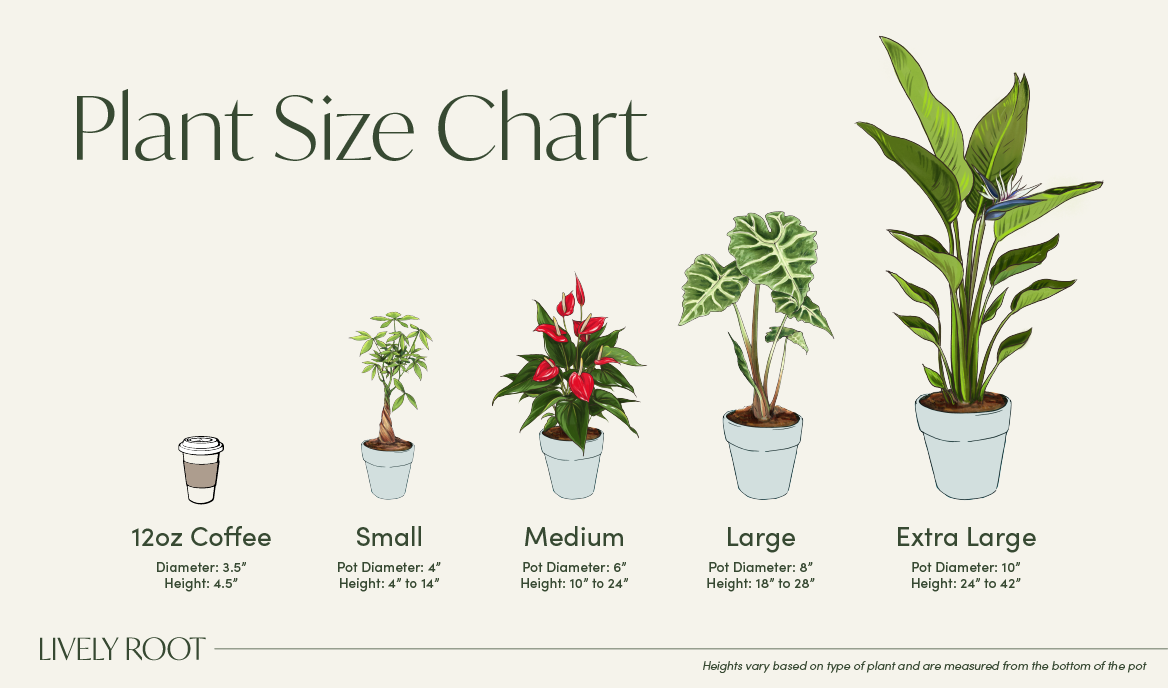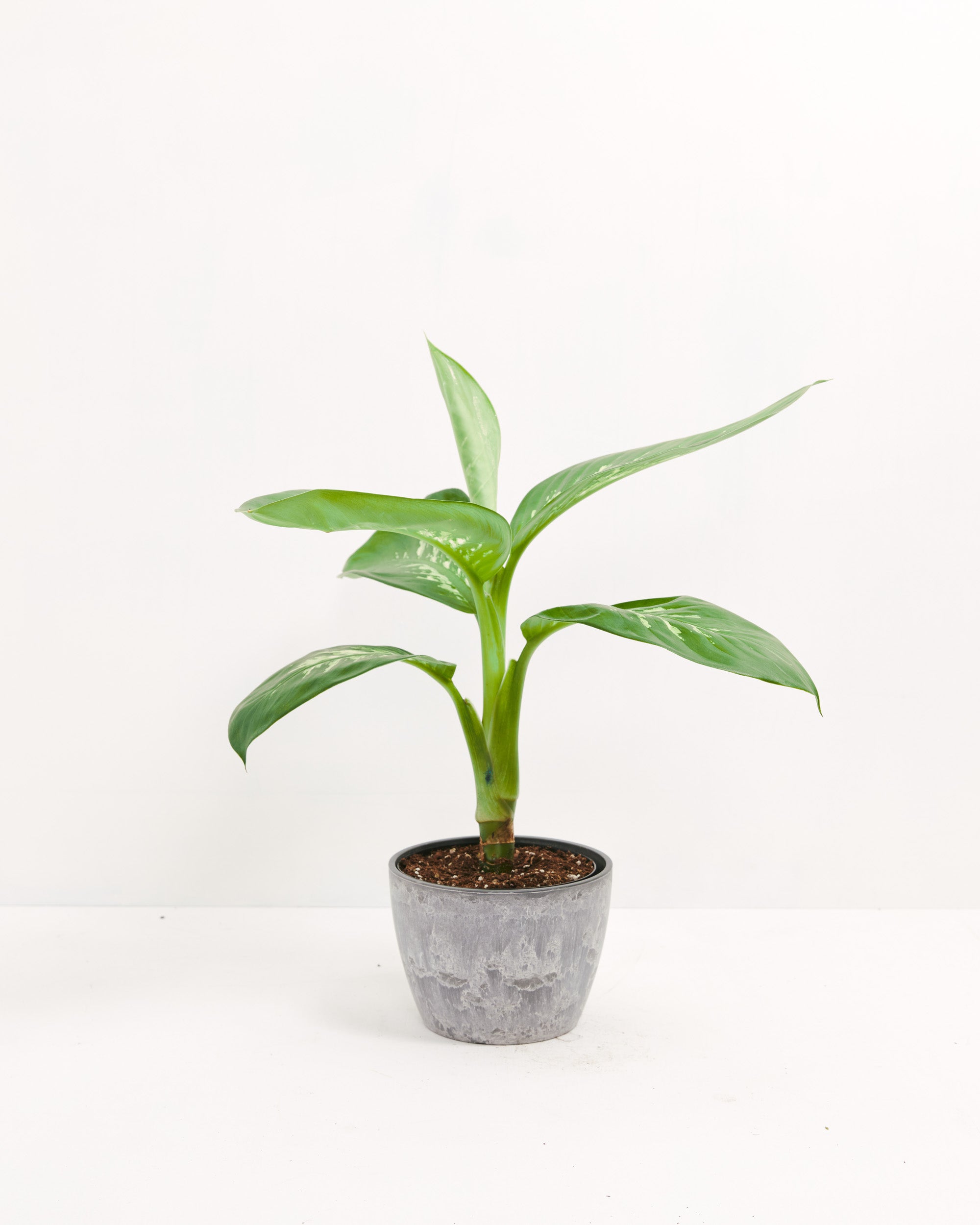

Dieffenbachia Carina (aka dumb cane) is a seriously popular houseplant. Their lush foliage is made up of large leaves in a vibrant medium green color, with variegated splotches in darker and lighter tones. They are super easy to care for, and just need an occasional spritz. Grow them in a pot, a hanging basket, or train them on a trellis.
Dieffenbachia carina Care Guide

Prefers medium levels of indirect light.
Water well and then allow the soil to dry out between each watering.
Enjoys humidity. Spritz occasionally.
Keep this plant out of cold drafts near open windows or doors.
Outside: Keep them in full shade on a patio out of direct sunlight to prevent leaf burn.
Apply a liquid fertilizer especially formulated for indoor plants. Apply during the spring, summer and fall season. Let them rest during the winter.
When receiving the Dieffenbachia, do not repot immediately but wait at least 6-12 months or if the roots are beginning to get crowded and growing through the drainage holes.
Repot in the spring, using a 2 inches bigger pot to keep the roots drier. (Too big of a pot could cause the soil to dry slower, which is not helpful.)
Place a piece of screening at the bottom of the container over the drainage hole to secure the soil and allow to drain. Use a well-draining indoor potting mix with perlite to help with drainage.
Water your plant in the old pot before transferring over and let them sit an hour.
Add soil to the bottom to elevate the root ball. Lift the plant and release the roots against the existing planter. Use a clean knife or garden trowel to wedge between the pot and the soil to loosen.
Inspect the root ball. Notice if there are any dead or rotting roots and trim off with sterile pruners. If the plant is rootbound, cut through the roots to alleviate continued encircling.
Ensure the plant is sitting about 1 inch below the edge of the pot to avoid water spillage. Add more soil and backfill around the sides by tamping down. Fill up to the soil line but not over.
Water thoroughly, leaving the soil damp but not soggy. If settling occurs, add more soil.
Water well to dampen the soil and let drain.
To shape your Umbrella tree, use pruners and cut right above the leaves. From here, the stem will fork and create two branches and produce more growth. Remove any dead, damaged, or diseased leaves. Remove dropped leaves on the soil surface and replenish the soil if needed.
To keep your Dieffenbachia from growing leggy, prune each quarter. Remove top growth to encourage your plant to stay more compact and bushy. If your Dieffenbachia has become too leggy, then cut back on the stalk to where you want them to begin to put on new growth and stay more compact. Do not remove more than one-third of the entire plant at one time, or this will cause too much stress and hinder their health. Look for any pests or diseases. Remove any debris from the soil and replenish if necessary.
To propagate this plant during the growing season, take a stem cutting in the early spring. Use a knife or sharp pruners, cut below a node where there are at least three leaves. Find a place in the plant where there are still stalks on either side with leaves so they will have a chance to generate new leaves. Place the stem in a glass jar and fill with filtered water and watch the roots grow! Replace and freshen the water each week. After the roots are several months old, add to moistened potting soil, continue to water, and give them the bright, indirect lighting requirements.
Soil propagation includes dipping the cutting in hormone stimulator and placing in prepared rich, well-draining, moist (but not soggy) soil with plenty of aeration. Keep the soil moist for approximately four weeks until roots begin to grow. You can tug slightly on the stalk to see if roots are grabbing and holding after this time. Provide them bright, indirect light to acquire the photosynthesis for growth to occur.
Remove the plant from the pot. Hold the base and turn upside down with your palm securely holding the plant. Gingerly pull the pot off the root base. Remove the soil around the plant so the individual stalks can be separated. Use a chopstick to help wedge between the stalks and separate. Carefully separate all the roots to their individual stalks. Repot each in new well-draining aerated soil. Use a smaller pot for each stalk carefully not using a bigger pot may be harder to regulate their watering needs. Fill with soil, leaving an inch below the soil edge to eliminate water spillage. Water and let drain well.


























